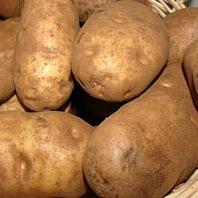
South Korea has suspended potato imports from the US states of Oregon, Washington and Idaho over concerns they may spread zebra chip disease.
The ban went into effect on 17 August, a report by US fresh produce news service the Packer stated.
Oregon Potato Commission vice president Bill Brewer said it was likely growers from the state would be the worst affected. “We ship quite a bit, Washington a fair amount and Idaho a little,” he told the Packer.
Brewer questioned the science behind the ban as Oregon potatoes are treated for the psyllids that cause the disease before they are exported.
“We don’t think (the ban) is justified, because of scientific reasons,” he said. “The probability of something getting there is very slim.”
He added that scientific data from Korea’s plant health inspection service indicated the psyllids that cause the disease were already present in the country.
The disease discolours the interior of potatoes, rendering them unsalable. Exporters from the impacted states are hopeful bilateral trade discussions scheduled for late August will clear up the matter, as zebra chip poses minimal phytosanitary risk.
According to the US Department of Agriculture’s Foreign Agricultural Service in 2011 some 16,700 tonnes of fresh US potatoes, worth about US$6m, were shipped to Korea.
The US exported just under 408,000 tonnes of fresh potatoes to world markets during 2011 – approximately 15 per cent more than in 2010 and some 55 per cent more than in 2007.
While Canada and Mexico absorb about 80 per cent of international shipments, Asian markets have become increasingly important to US exporters, occupying the next eight positions in terms of annual volume.
South Korea was the leading Asian importer of US potaotes last year, followed by Malaysia. Taiwan, Thailand, Singapore, The Philippines and Hong Kong are also major markets for US potatoes.



